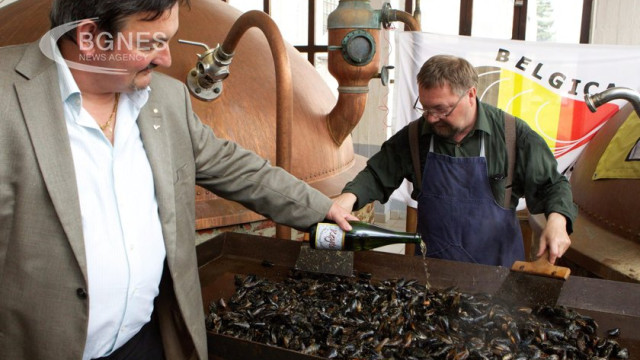Artificial intelligence (AI) is rapidly transforming industries from self-driving cars to automated customer service. Now scientists have found a way to use AI to make beer better, and not just any beer, but Belgian beer.
The story comes from Belgium's KU Leuven and Professor Kevin Verstrappen. Verstrappen believes artificial intelligence can be a powerful tool for brewers. He explains that beer has hundreds of aroma molecules that influence the way people perceive its taste and aroma.
These molecules interact with each other, so the taste of beer depends on all the molecules present.
AI can help us understand these interactions and predict how a particular combination of aroma molecules will make beer taste. So in practice, AI won't take over production, it will enhance it.
"Beer - like most food products - contains hundreds of different flavor molecules that are picked up by our tongue and nose, and then our brain integrates them into a picture," Verstrappen says. "However, the compounds interact with each other, so the way we perceive one of them depends on the concentrations of the others as well."
More than 250 Belgian beers of various styles, including fruit beers, West Flanders ales, blends and even non-alcoholic beers, a total of 22 different styles, were analyzed for the AI study.
Each beer is meticulously researched - analyzed for alcohol content, sweetness and more than 200 flavor ingredients. To understand how these chemicals affect taste, a dedicated team of 16 tasters spent three years tasting each beer for 50 different flavour aspects such as sweetness, bitterness and acidity.
The study doesn't end there. They incorporated real consumer opinions by analyzing 180,000 online reviews from RateBeer.
Once the AI study was complete, the researchers found that even small adjustments to a beer's chemical makeup can redefine its taste.
One of the interesting discoveries Verstrappen made was that certain compounds that were previously thought to be unpleasant actually turned out to be desirable in smaller amounts, especially when paired with other specific flavors.
Based on the data collected, the team is building artificial intelligence models that predict what the beer will taste like. They even worked on predicting the beer's rating based on its composition.
With the collected results, along with the AI findings, they focused on improving commercial beer. They then tested these models by adding small amounts of specific chemicals (such as lactic acid and glycerol) to existing beer based on the AI suggestions.
When the results were obtained, they were more than positive, which means that AI can improve the taste of beer. Both alcoholic and non-alcoholic versions received higher scores in all significant categories.
What does this mean for the beer industry? Only high-end commercial beers were used for this particular study, but Verstrappen argues that these AI models may be best used to improve non-alcoholic beers.
The professor concluded on the note that beer makers need not worry, as the skill of brewing beer remains the most important part of the process, easing the minds of brewers who think AI is coming for their beer. /BGNES







